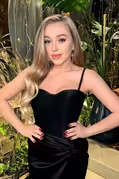The largest country in the world, Russia is a fusion of ballet, vodka, caviar and lots of red color. The nation of hammer and sickle russian women’s names g in naming tradition with a revolutionary touch!
With almost 144 million people and Moscow as the capital, Russia has always had a complicated history. Under the repressive regimes of Tsars, Bolsheviks and eventually the Communist Party, one would hardly find a country in the world with larger cultural and social differences. Despite the setbacks, there is a chance for brighter future. Originally a Slavic language using Cyrillic alphabet, Russian is spoken by 270 million people around the world. Please help improve it or discuss these issues on the talk page.
This article includes a list of references, but its sources remain unclear because it has insufficient inline citations. This article may need to be rewritten entirely to comply with Wikipedia’s quality standards. Eastern Slavic parents select a given name for a newborn child. Almost all first names are single. Most doubled first names are written with a hyphen: Mariya-Tereza. Being highly synthetic languages, Eastern Slavic treats personal names as grammatical nouns and apply the same rules of inflection and derivation to them as for other nouns.
V distinction: the T-form of address usually requires the short form of the counterpart’s name. The name “Marina” traditionally has no short form. Alexander Pushkin’s poem Ruslan and Ludmila. East Slavic short form of his name.
In the latter case, one form is usually more informal than the other. Veruschka, a German model, actress and artist. The name “Vera” is Slavic and literally means “Faith”. Veruschka” is the German spelling of one of the typical diminutive variants of this name. Diminutive forms are produced from the “short name” by means of various suffixes.



